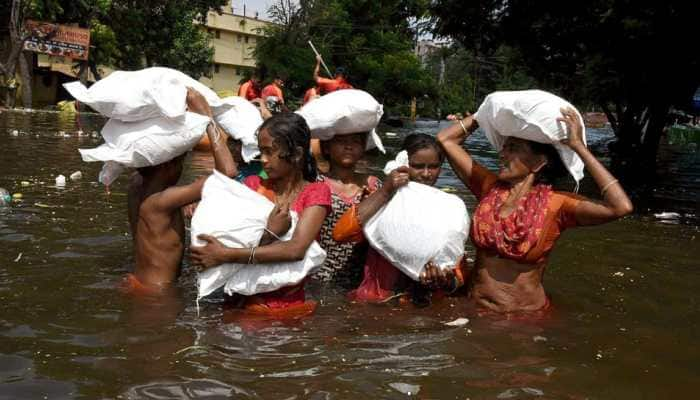India's climate action plan evokes wide appreciation
India's pledge on Friday to reduce carbon emissions up to 35 percent by 2030 evoked wide appreciation, with some terming the climate action plan as "aggressive" and "superior" to the ones proposed by the developed nations.
Trending Photos
)
New Delhi: India's pledge on Friday to reduce carbon emissions up to 35 percent by 2030 evoked wide appreciation, with some terming the climate action plan as "aggressive" and "superior" to the ones proposed by the developed nations.
Adarsh Das, co-founder and chief executive officer of the solar energy major SunSource Energy, said India's INDCs towards emission reduction showed real responsibility and farsightedness.
"We believe that these goals, while somewhat aggressive, will provide the right boost to economy-wide efforts towards reducing carbon and resource intensity," he said.
Stating that the climate action plan, at a fundamental level, will change private sector discourse and focus it on sustainable growth, Das said: "With this focus, we are hopeful that India will stand up and make its contribution to mitigating both the scale and impact of climate change."
Paharpur Business Centre chief executive officer Kamal Meattle said: "The 35 percent reduction in carbon emissions by 2030, with 40 percent of our energy coming from renewables, is certainly a very welcome announcement as India's INDC and towards our global contribution."
Sandeep Chachra, executive director of ActionAid India, said despite huge developmental challenges, the government has put forward a climate action plan that is far "superior" to ones proposed by the US and the European Union.
"Its ambitious focus on energy efficiency and dramatic increase in renewable energy deserves credit but must lead to enhanced energy access for the poor. This clearly puts the onus on developed countries to meet their obligations of providing public finance and technology transfer to developing and least developed countries," Chachra said.
Chachra said the government rightly put the focus back on the need to adapt to climate impacts, adding that farming communities were suffering even more from erratic and extreme climatic conditions.
He said small farmers, constituting 84 percent of the farming households, suffer the most, as changes in India's climate are leading to land and coastal degradation, soil erosion, loss of bio-diversity, all of which are already seriously aggravating food insecurity in the country.
India's climate action plan came ahead of the crucial 21st meeting of the Conference of Parties under the UN Framework Convention on Climate Change to be held in Paris from November 30 to December 11.
The submissions, called from the 196 parties (or countries) under the framework, are meant to serve as the basis for negotiating an agreement that will lay the path for a low-carbon, climate-resilient future. So far, 120 countries, collectively accounting for 85.3 percent of global emissions, have made submissions.
Stay informed on all the latest news, real-time breaking news updates, and follow all the important headlines in india news and world News on Zee News.
Advertisement
Live Tv
Advertisement







)
)
)
)
)
)
)
)
)
)
